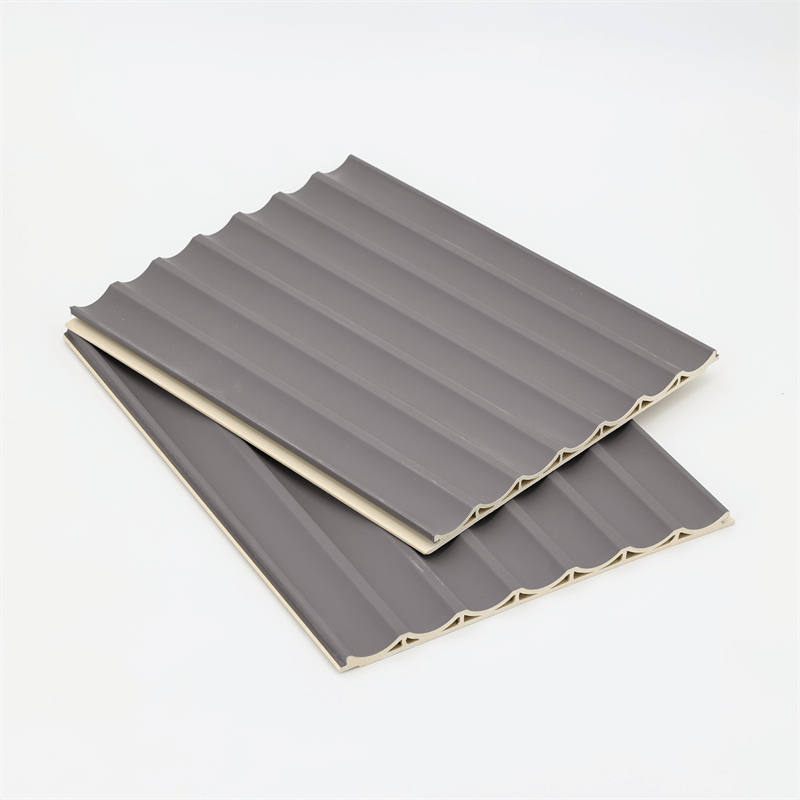In recent years, sustainability has become a significant consideration in various industries, including interior design and construction.
As businesses strive to minimize their environmental impact, creating a sustainable office space has gained importance.
Recycled WPC (Wood-Plastic Composite) wall panels offer an excellent solution in this endeavor.
This essay explores the concept of sustainable office spaces and highlights the benefits of using recycled WPC wall panels as a sustainable wall covering option.
I. Understanding Sustainable Office Spaces:
- Defining Sustainability in Office Spaces: Sustainable office spaces are designed and constructed with a focus on reducing environmental impact while promoting occupant health and well-being. These spaces incorporate eco-friendly materials, energy-efficient systems, and sustainable practices to achieve a balance between social, economic, and environmental factors.
- Environmental Benefits of Sustainable Office Spaces: Sustainable office spaces contribute to environmental preservation through reduced energy consumption, lower greenhouse gas emissions, efficient resource utilization, and waste reduction. By incorporating sustainable materials, businesses can significantly minimize their carbon footprint and support the transition towards a greener future.
II. Exploring Recycled WPC Wall Panels:
- Understanding Recycled WPC Wall Panels: Recycled WPC wall panels are a sustainable alternative to traditional wall coverings. They are manufactured from a combination of recycled wood fibers and plastic, often utilizing post-consumer or post-industrial materials. By repurposing waste materials, these panels contribute to resource conservation and waste reduction.
- Environmental Benefits of Recycled WPC Wall Panels: Recycled WPC wall panels offer several environmental advantages. Firstly, they reduce the demand for virgin materials, conserving natural resources and reducing deforestation. Secondly, the use of recycled materials diverts waste from landfills, minimizing the environmental burden associated with waste disposal. Additionally, the production of WPC panels requires less energy and water compared to conventional wall coverings, further reducing the ecological footprint.
III. Benefits of Using Recycled WPC Wall Panels in Office Spaces:
- Sustainability and Green Certification: Incorporating recycled WPC wall panels in office spaces aligns with sustainability goals and can contribute to green building certifications such as LEED (Leadership in Energy and Environmental Design). This enhances the credibility of the business, demonstrates commitment to sustainability, and attracts eco-conscious clients or tenants.
- Durability and Longevity: Recycled WPC wall panels are renowned for their durability and long lifespan. They resist rot, decay, and insect damage, ensuring that the office space maintains its aesthetic appeal and structural integrity for an extended period. This longevity reduces the need for frequent replacements and minimizes waste generation.
- Indoor Air Quality: One crucial aspect of sustainable office spaces is ensuring a healthy indoor environment for occupants. Recycled WPC wall panels are typically free from harmful volatile organic compounds (VOCs) commonly found in some traditional wall coverings. This promotes better indoor air quality, contributing to the well-being and productivity of employees.
- Design Flexibility and Aesthetics: Recycled WPC wall panels offer a wide range of design options, allowing businesses to create visually appealing and customized office spaces. They can mimic the appearance of natural materials such as wood or stone, providing a sophisticated and eco-friendly aesthetic. The versatility in colors, patterns, and textures allows for creative expression and aligning the design with the company’s brand identity.
IV. Implementing Recycled WPC Wall Panels in Office Spaces:
- Collaborating with Sustainable Suppliers: To ensure the use of genuine recycled WPC wall panels, businesses should collaborate with reputable suppliers who adhere to sustainable manufacturing practices. Certifications such as Forest Stewardship Council (FSC) or Cradle to Cradle (C2C) can validate the sustainability claims of the materials.
- Integration with Sustainable Design: Incorporating recycled WPC wall panels should be part of a holistic sustainable design approach for the office space. This includes utilizing energy-efficient lighting, optimizing natural daylighting, employing eco-friendly furniture and finishes, and implementing efficient HVAC systems. The integration of these elements ensures a comprehensive sustainable environment.
- Educating and Engaging Occupants: Creating a sustainable office space goes beyond material choices; it also involves educating and engaging occupants in sustainable practices. Providing information on the environmental benefits of recycled WPC wall panels, conducting sustainability workshops, and encouraging responsible behavior can foster a culture of sustainability within the office.
Creating a sustainable office space is not only a responsible choice but also offers numerous benefits for businesses and the environment.
Recycled WPC wall panels provide an effective solution for achieving sustainability goals, offering environmental advantages such as resource conservation, waste reduction, and energy efficiency.
Their durability, aesthetic flexibility, and contribution to occupant well-being make them a valuable addition to sustainable office design.
By incorporating recycled WPC wall panels and adopting sustainable practices, businesses can lead by example and contribute to a greener future while providing a healthy and inspiring workspace for their employees.

In conclusion, incorporating recycled WPC wall panels in the design and construction of office spaces is a significant step towards creating a sustainable environment.
These panels offer several benefits, including reduced environmental impact, enhanced durability, improved indoor air quality, and design flexibility.
By utilizing recycled materials, businesses can contribute to waste reduction, conserve natural resources, and minimize their carbon footprint.
Sustainable office spaces not only support environmental preservation but also align with the values of eco-conscious clients and employees.
The integration of recycled WPC wall panels can enhance the credibility of businesses, attract sustainability-minded tenants or clients, and potentially contribute to green building certifications.
However, the implementation of recycled WPC wall panels should be part of a comprehensive sustainable design approach.
Collaboration with reputable suppliers, integration with other sustainable elements, and educating and engaging occupants are crucial for maximizing the benefits of these panels and creating a truly sustainable office space.
As businesses increasingly recognize the importance of sustainability, incorporating recycled WPC wall panels becomes a practical and responsible choice.
By embracing sustainable practices and materials, businesses can not only reduce their environmental impact but also provide a healthier and more inspiring workspace for their employees.
Sustainable office spaces demonstrate a commitment to a greener future and set a positive example for other industries to follow.
In conclusion, by choosing recycled WPC wall panels, businesses can create sustainable office spaces that contribute to a healthier planet, foster employee well-being, and showcase a commitment to environmental responsibility.
It is a step towards a more sustainable future where design and functionality coexist harmoniously with ecological preservation.


